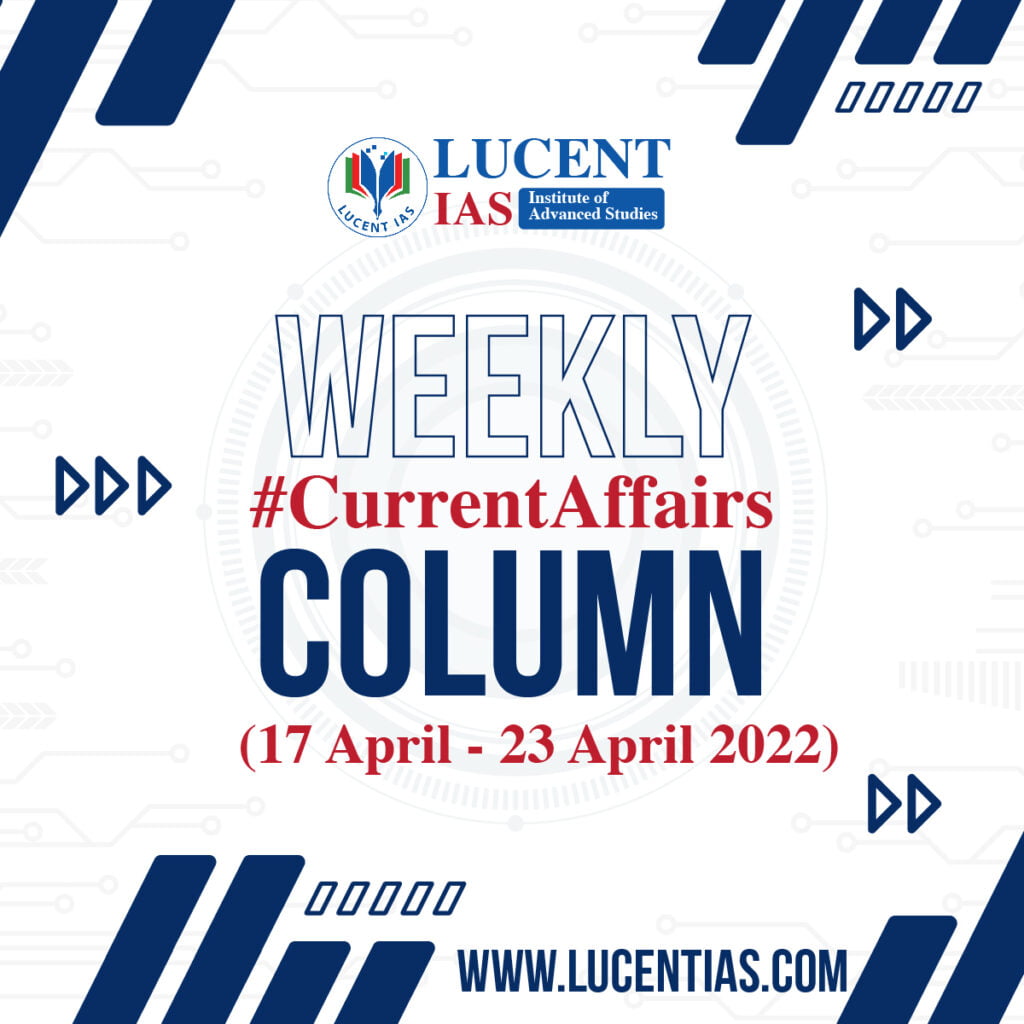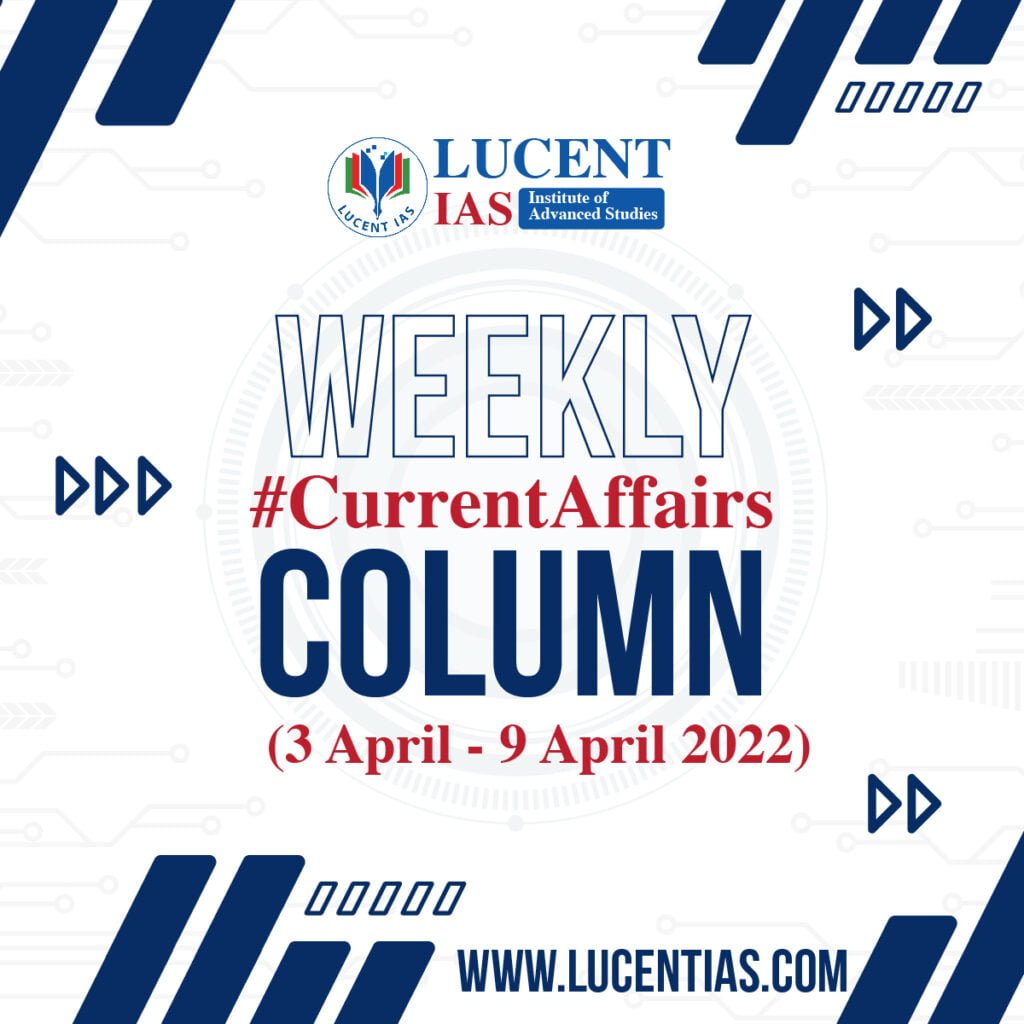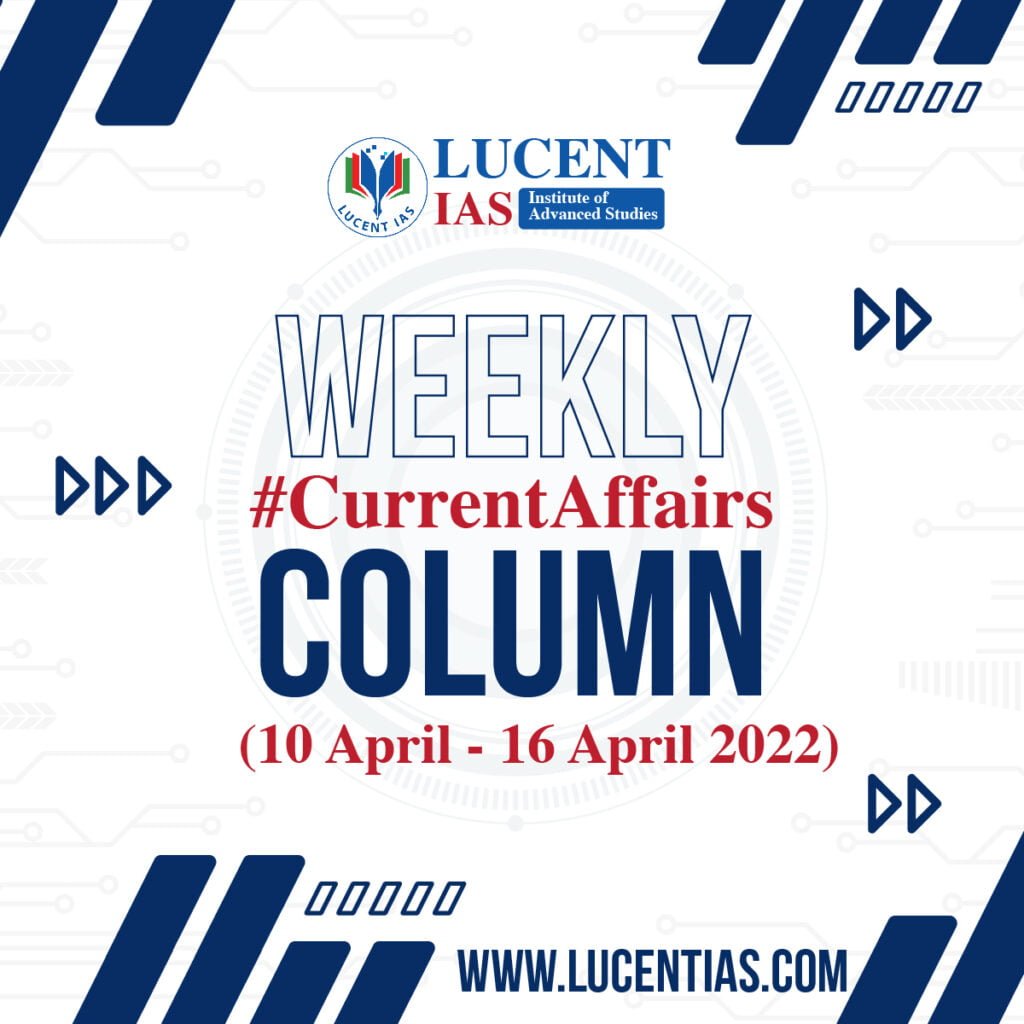In this Weekly Current Affairs Column, Columnist Mr. Kaustav Pallav provides key insights on a few selected and important news and development in the past week. (17th April to 23rd April, 2022)
Dear readers,
The very low inflation rate in the wholesale prices has come as a concern to us all. While the retail inflation is at its very high, this difference between the two shall bring about a commotion in policy devising which essentially is nothing more but a reflection of a weakening economy. However to rejoice about something in the previous week is India finally launching the sixth submarine of the P75 project, INS Vagsheer, to be officially named so at the time of its commissioning. This was also the last scorpene class submarine made under the said project that can join the Navy fleet after the required sea trials are over. On the other hand, our neighbour Sri Lanka’s proposal of the 21st amendment to their constitution intending to end the Presidential system of government comes at a time when FM Nirmala Sitaraman sends her word to IMF Chief asking to help out the island nation off its crisis. Such amendment proposal suggests nothing more but a rift in their internal political spectrum, which shall deepen further their crisis. Also India has extended duration of the $400 million currency swap to Sri Lanka which otherwise would have terminated in January itself.
To talk about a few more developments,
WHO Global centre for traditional medicine in Jamnagar, Gujarat
This centre will cherish the potential of traditional medicines while integrating it with newest developments in technology. Global centre for traditional medicine aligns its objective with the WHO’s traditional medicine strategy for the period 2014-23. WHO claims that 80% of world’s population uses traditional medicine while also expressing the need to formulate modern ways to study traditional medicines. This is one unique attempt to boost exports and nurture a sustainable ecosystem. The government has vouched for visas for AYUSH therapy, while coming up with its new policy of “Heal in India”.
UK Prime Minister Boris Johnson in India
British Prime Minister Boris Johnson during his visit to India has announced to create one open general export license (OGEL) for India for defence procurements. This license expects to reduce bureaucracy and delivery times while maintaining that this is the first British OGEL in the Indo Pacific region. Questions relating to FTA were also discussed by the two Prime Ministers and statements say that negotiations between the two nations are going on. India already has FTAs with UAE and Australia.
Reusable Launch vehicle
ISRO is planning to carry out the landing experiment (LEX) in the next few days which is a critical component of the Reusable Launch Vehicle demonstration technology (RLV-TD). This will involve taking one unmanned prototype to an altitude of 2.3 km before releasing it to land and also some 3.4 km away from the runway, the distance which the prototype shall have to travel autonomously. Cost has always been the biggest factor to carry out space programs and successful demonstration of such RLV-TD LEX by ISRO will subsequently reduce the cost and effectively allow Indian agency to access space exploration.
Less porous space bricks for Mars!
Now that the earth has become small for us, agencies were busy making bricks of Martian soil for human settlement in the red planet. However those bricks were porous and unfit. To whichISRO and IISc together have developed less porous space bricks using Martian soil and bacteria and urea. They made the slurry with Martian soil, urea, guar gum, bacteria called Sporocarsina pasteurii, and Nickel Chloride. The slurry was put in moulds of different shapes and was left for a few days. The bacteria in the slurry converted the urea into calcium carbonate crystals and that these crystals along with secretions by microbes acted as cement binding the materials together to yield bricks which are less porous.
Rise in wheat exports
Egypt has approved India as wheat import origin. Egypt imported around 80% of wheat from Russia and Ukraine region. However because of the war they were looking for cheaper source elsewhere. Also as for the global exports, Russia and Ukraine together account for 30% of it. This nevertheless creates an opportunity for India when India’s wheat production has been rising since the last five years and consistently exceeding its demand. India’s wheat exports did hit 7.95 million tonnes, an all-time high, increasing from 2.1 million tonnes the previous year.
That is all for this week, readers. With hope of new stories, we shall meet again the next week. Until then, take very good care of yourselves and everyone around.
Yours truly,
Kaustav Pallav



